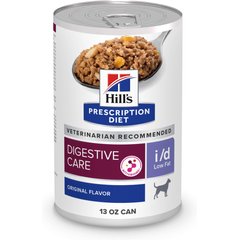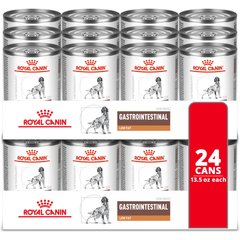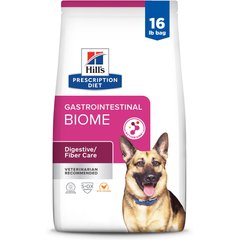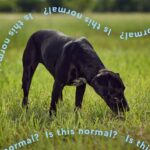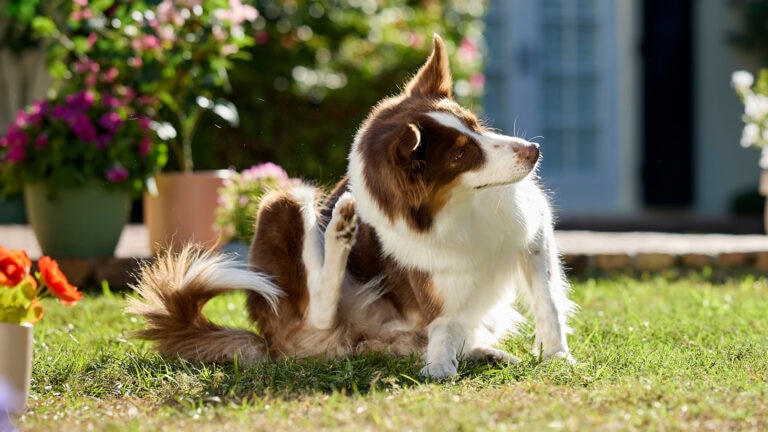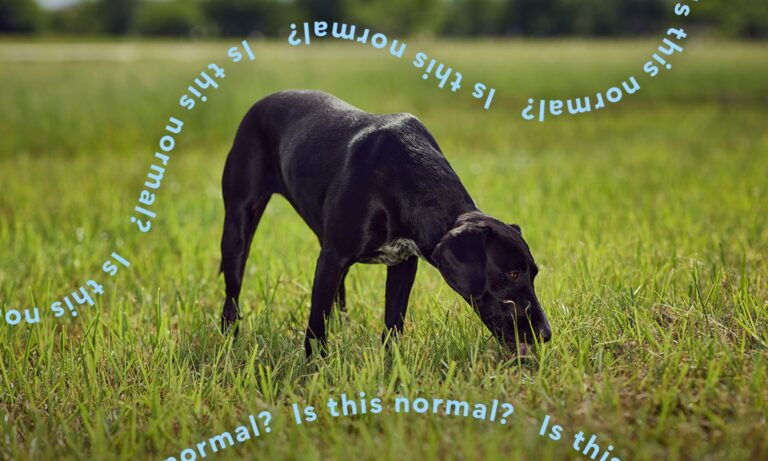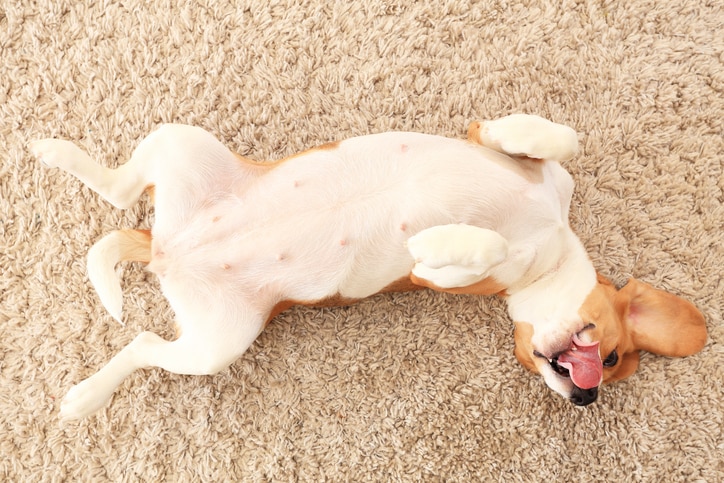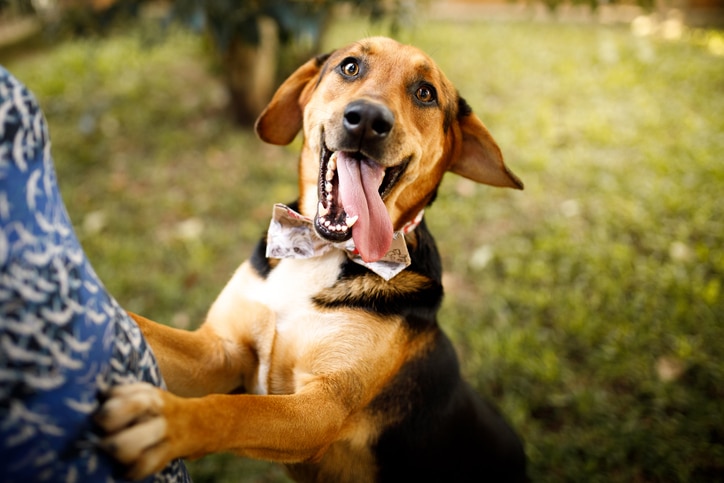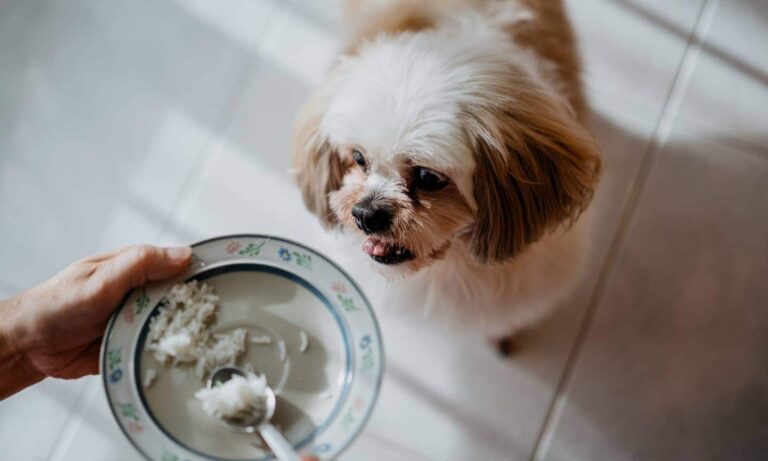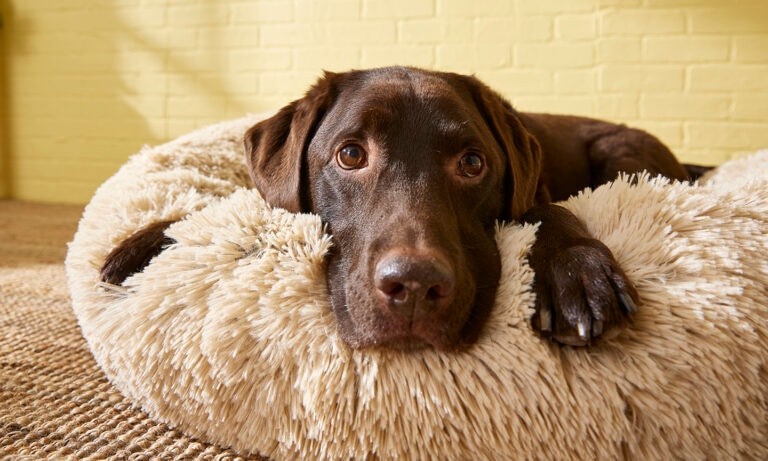What Causes Old Dog Diarrhea? And How Do I Treat It?
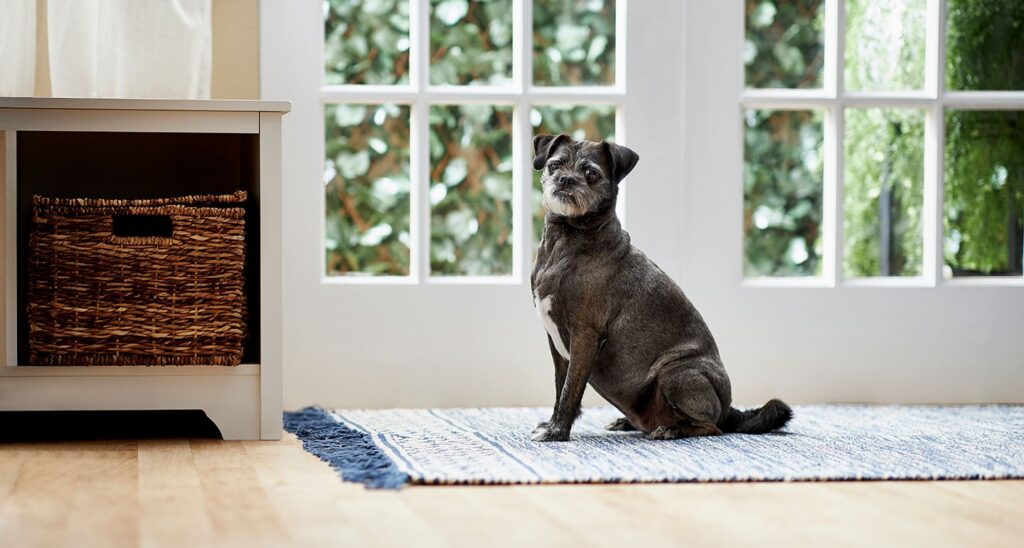
Photo by Chewy Studios
While dogs at any age can suffer from the occasional bout of diarrhea, this issue may indicate other medical issues, especially in senior dogs.
There are many reasons why an older dog could potentially struggle with senior dog diarrhea. But don’t immediately panic if you notice diarrhea in your older dogs. Fortunately, there are several ways to address this messy, debilitating and often uncomfortable problem.
What Are the Signs of Old Dog Diarrhea?
Before getting into the signs of dog diarrhea in older dogs, it’s helpful to discuss the different types.
Dog diarrhea is divided into three main categories: small bowel diarrhea, large bowel diarrhea, or a combination of both. It’s then further categorized into chronic diarrhea, acute diarrhea or intermittent diarrhea. This is important because different types of diarrhea can have varying signs and underlying causes. Because of this, they’ll also need different types of tests (and require different types of treatment).
Small Bowel Diarrhea
Small bowel diarrhea develops in the small intestine. Signs of small bowel diarrhea can include:
- Copious amounts of diarrhea a couple of times a day
- No straining or increased urge to defecate
- Vomiting
- Loss of appetite
- Weight loss
- Black or tarry-looking stools (if there’s blood in the diarrhea)
Large Bowel Diarrhea
Large bowel diarrhea comes from the large intestine, which is further down the intestinal tract and includes the colon and rectum. In contrast to small bowel diarrhea, the signs of large bowel diarrhea are:
- An increased urge to defecate and usually pass stool more often
- Mucus-covered stool
- Bright red stool (if blood is present)
There is usually no weight loss, vomiting, or loss of appetite observed with large bowel diarrhea.
Acute vs. Chronic vs. Intermittent Diarrhea
Large or small bowel diarrhea is classified as acute if it lasts less than two weeks and chronic if it lasts for more than two weeks. Intermittent diarrhea can occur in the large and small bowel, and it comes and goes.
Why Is My Senior Dog Having Diarrhea?
An elderly dog’s gastrointestinal tract can be sensitive and react poorly in many circumstances. That’s one reason why easily digestible senior dog foods—such as Nutro™ Ultra™ Senior Dry Dog Food—are a good choice for older dogs.
Old dogs often have health problems or are on medication, which can upset the balance of the body and GI tract and cause senior dog diarrhea. Any disease that affects the body can also cause senior dog diarrhea.
If your old dog has diarrhea that appears to be acute and large bowel in origin, this condition is called colitis. In this case, common causes of diarrhea may include:
- Dietary indiscretion, such as eating garbage or spoiled food
- Ingestion of foreign objects, and irritation from passing those foreign bodies
- An adverse reaction to fatty food, drugs, or toxins
- Intestinal parasites like whipworms
- Bacterial infections
- Inflammatory conditions like inflammatory bowel disease (IBD)
- Irritable bowel syndrome from stress
- Systemic illness, such as liver disease, kidney disease, or Addison’s disease
Acute small bowel diarrhea can also be caused by the above conditions.
If your old dog has diarrhea (small or large bowel) that appears to be chronic or intermittent, the most common causes can include:
- Infectious diseases and viral infections, like parvovirus (this particular infection is less common in older dogs but can still develop)
- Small intestinal dysbiosis
- Food responsive disease
- Inflammatory bowel disease
- Systemic illnesses and cancer
Senior dogs can also get diarrhea from stressful situations, like veterinary visits, vaccines, or boarding. If you know your older dog gets nervous poops, talk with your veterinarian about pre-treating your dog with probiotics, like Purina® Pro Plan® FortiFlora® Probiotic Gastrointestinal Support Dog Supplement, to help mitigate this problem.
Most cases of old dog diarrhea (and general canine diarrhea) are self-limiting. That is, nature takes its course, and it clears up on its own in a day or two. If the diarrhea doesn’t clear up within 48 hours to 72 hours, then it is time to get the veterinarian involved to check for health issues.
How To Tell If My Dog's Diarrhea Is an Emergency
Diarrhea can feel alarming, but it isn’t always a cause for immediate action. In some situations, you should be concerned about your older pet’s health though.
Some signs that you should take your dog to the vet immediately are:
- Explosive diarrhea and/or the presence of bloody diarrhea
- Vomiting that doesn’t stop
- Swollen appearance to the abdomen or belly
- Fever above 103 degrees F
- Your senior dog is medically fragile due to other health conditions
- Collapse
- Dehydration (prolonged skin tent, dry gums, sunken eyes)
If you notice that your dog develops diarrhea and other side effects after taking a medication that is prescribed by your veterinarian, call the office immediately to report it and get recommendations.
What Is the Treatment for My Dog's Diarrhea?
If you notice your dog has diarrhea suddenly, don’t panic! Remember that many times, diarrhea resolves on its own.
You can help your dog by feeding a bland diet for a couple of days until the diarrhea resolves and normal bowel movements return. This bland diet can be either homemade, like boiled chicken breast and plain white rice, or store-bought, like Hill’s® Prescription Diet® Gastrointestinal Biome Chicken Flavor Dry Dog Food.
If time and bland food aren’t curing your senior dog’s loose stool blues, it is time to get the vet involved. Before any treatment is instituted, your veterinarian will want to get a history from you, conduct a physical exam of your dog, and run some laboratory tests. Tests can include a fecal exam for parasites (bring a sample of your dog’s stool with you), bloodwork and urine tests.
Treatment for the majority of cases of diarrhea in older dogs includes monitoring, medication, maintaining hydration and feeding morsels, like the best wet dog food for senior dogs, that help the digestive tract.
Monitoring
As the pet owner, it’s your responsibility to make sure your dog eats the right food, takes all their medications and drinks adequate amounts of water.
It is up to you to ensure that the recommended therapy is working, your dog is getting better and the diarrhea is resolving.
Knowing what your dog’s normal stool, energy and appetite looks like can help you recognize when something is not right.
Medication
Medication may be prescribed to resolve diarrhea in senior dogs, reduce pain and intestinal spasms and address any root causes, such as parasites or microbiome imbalances. The type of prescription depends on the cause of diarrhea, but may include deworming treatments or anti-inflammatory medications.
Give all medications as prescribed and until finished, even if the diarrhea resolves before the round of medication is completed. Some over-the-counter human medications are safe for your dog, but never give your dog any type of medication without prior approval from your veterinarian.
Maintaining Hydration
Diarrhea is a leading cause of dehydration in senior dogs.
If your dog is very dehydrated, your veterinarian may give your dog subcutaneous or intravenous fluids to replace water and electrolytes.
At home, make sure to provide fresh, clean water at all times. You can also increase fluid intake by feeding canned food or adding water to dry food.
Helpful Food Morsels
Guts afflicted with diarrhea need to heal. You can help move the process along by swapping your dog’s regular dog food for grub that’s gentler on their sensitive stomach. Think: bland, easily digestible dog food.
Hill’s® Prescription Diet® i/d® Digestive Care Low Fat Original Flavor Pate Canned Dog Food or Royal Canin® Veterinary Diet Gastrointestinal Low Fat Canned Dog Food are both good dog foods for older dogs who have diarrhea and are often authorized by veterinarians.
Feed bland food until several days after diarrhea has resolved to promote maximum healing of the gut.
If treatment does not appear to be helping your dog, let your veterinarian know right away. You may need to take your dog in for multiple rechecks and further laboratory testing or imaging studies, such as an abdominal ultrasound or radiographs/X-rays.
Patience is key here: Just like in humans, if your dog’s gut is chronically inflamed, it can take some time and testing to figure out what is going on.
Recommended Products
FAQs
The following commonly asked questions about diarrhea in senior dogs were answered by Dr. Katy Nelson, DVM, Chewy vet.
What can I give my senior dog for diarrhea?
If your senior dog has a mild case of diarrhea, or perhaps ate some extra human food, you can try adding a probiotic to their diet like Purina Pro Plan Veterinary Diets FortiFlora Probiotic Gastrointestinal Support Dog Supplement or Nutramax® Proviable®-DC Capsules Dog & Cat Supplement. Probiotics can help increase the amount of good bacteria in the gut, while promoting more formed stools.
However, if the probiotics do not seem to help improve fecal consistency, it may be time to take your fur baby to the vet for more testing.
How common is diarrhea in senior dogs?
Diarrhea can be more common in senior dogs due to a tendency to acquire sensitive stomachs as they age. However, this does not mean that diarrhea should be considered normal. It is important to discuss possible underlying causes, as well as diet/supplements with your local vet if your senior pup is having consistently loose stool.
What should I feed my senior dog when he has diarrhea?
You can consider feeding a bland diet. This should consist of boiled chicken breasts or scrambled eggs (as a protein source) and plain white rice. A bland diet may give the digestive tract an opportunity to heal and hopefully produce more formed stools. If the bland diet seems to help, it should be continued for a few days after the stool has returned to normal.
At that point, your senior dog’s normal diet can be gradually re-introduced over about a week. If your fur baby has a consistently sensitive stomach, you can consider asking your vet about more testing or prescription diets, such as Hill’s Prescription Diet i/d Digestive Care Canned Dog Food and Royal Canin Veterinary Diet Gastrointestinal Low Fat Canned Dog Food.
Even though they sometimes need an extra dose of your tender loving care, senior dogs make wonderful companions. With the right treatment, most cases of diarrhea in senior dogs can be resolved easily and with minimal pain. Getting any digestive dysfunction under control is a great first step in making your senior dog happy.
This content was medically reviewed by a veterinarian.
